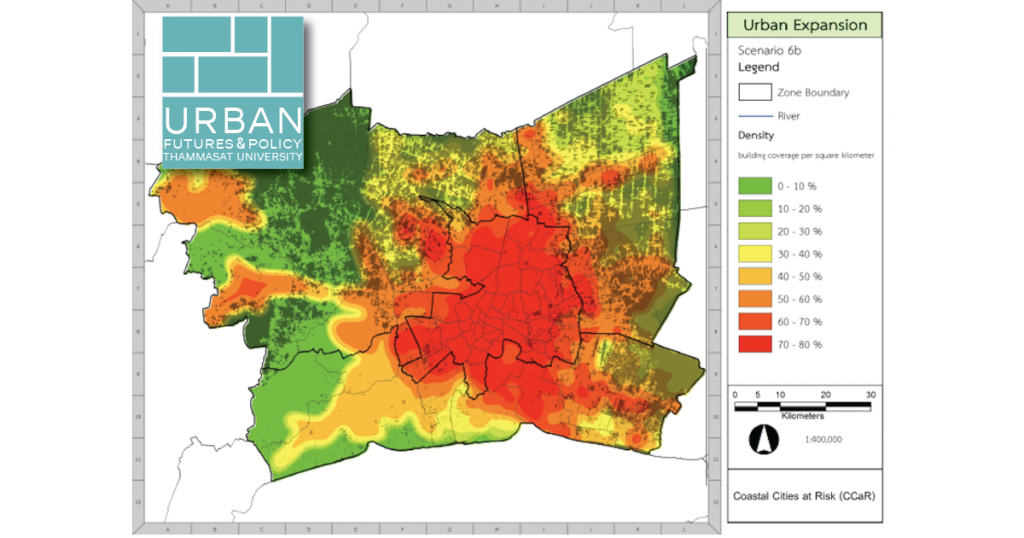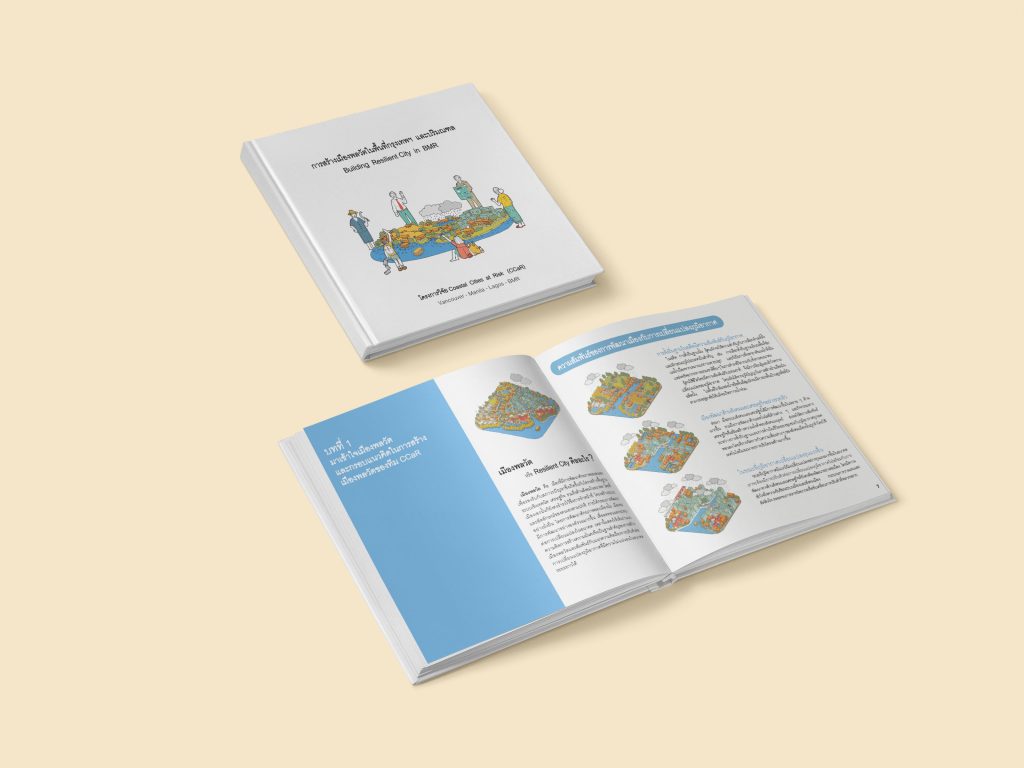urban resilience
Coastal Cities at Risk (CCaR): Building Adaptive Capacity for Managing Climate Change in Coastal Megacities
Case study of Vancouver, Manila, Lagos and Bangkok
Case study of Vancouver, Manila, Lagos and Bangkok
year 2011-2016
āđāļĄāļ·āļāļāļāļēāļĒāļāļąāđāļāļāļĩāđāļĄāļĩāļāļ§āļēāļĄāđāļŠāļĩāđāļĒāļ (CCaR): āļāļēāļĢāđāļŠāļĢāļīāļĄāļŠāļĢāđāļēāļāļĻāļąāļāļĒāļ āļēāļāļāļēāļĢāļāļĢāļąāļāļāļąāļ§āļŠāļģāļŦāļĢāļąāļāļāļēāļĢāļāļąāļāļāļēāļĢāļāļēāļĢāđāļāļĨāļĩāđāļĒāļāđāļāļĨāļāļŠāļ āļēāļāļ āļđāļĄāļīāļāļēāļāļēāļĻāđāļāļĄāļŦāļēāļāļāļĢāļāļēāļĒāļāļąāđāļ
āļāļĢāļāļĩāļĻāļķāļāļĐāļē: āđāļĄāļ·āļāļāđāļ§āļāļāļđāđāļ§āļāļĢāđ āļĨāļēāļāļāļŠ āļĄāļ°āļāļīāļĨāļē āđāļĨāļ°āļāļĢāļļāļāđāļāļāļŊ āđāļĨāļ°āļāļĢāļīāļĄāļāļāļĨ
āļāļĢāļāļĩāļĻāļķāļāļĐāļē: āđāļĄāļ·āļāļāđāļ§āļāļāļđāđāļ§āļāļĢāđ āļĨāļēāļāļāļŠ āļĄāļ°āļāļīāļĨāļē āđāļĨāļ°āļāļĢāļļāļāđāļāļāļŊ āđāļĨāļ°āļāļĢāļīāļĄāļāļāļĨ
āļ.āļĻ.2554-2559
Share on facebook
Facebook
Share on google
Google+
Share on twitter
Twitter
Share on linkedin
LinkedIn
Share on whatsapp
WhatsApp

(āļŠāļģāļŦāļĢāļąāļāļ āļēāļĐāļēāđāļāļĒ āļāļĢāļļāļāļēāđāļĨāļ·āđāļāļāļĨāļ)
The International Research Initiative on Adaptation to Climate Change - Coastal Cities at Risk (IRIACC-CCAR) is a five-year (2011-2016) program involving in-depth transdisciplinary studies of integrated risk in coastal megacities.
The International Development Research Centre (IDRC) of Canada manages IRIACC-CCAR in collaboration with three main research granting bodies, known as the Tri-Council: The Social Sciences and Humanities Research Council
(SSHRC), the Natural Sciences and Engineering Research Council of Canada (NSERC) and the Canadian Institutes of Health Research (CIHR). Various academic and research institutions within the Philippines, Thailand, Nigeria and Canada are involved in action research initiatives.
Coastal Cities at Risk (CcaR) is an interdisciplinary research - natural, engineering, sociopolitical-economic and health scientists and has objectives to develop the knowledge base and enhance the capacity of mega-cities to successfully adapt to and when necessary, cope with risks posed by the effects of climate change, including sea level rise, in the context of urban growth and development.
A. Advance knowledge of climate change adaptation and disaster risk reduction:
B. Develop strategies and methodologies for climate change adaptation:
C. Enhance practitioner and academic capacity and transfer knowledge:
There are six thematic components to the IRIACC-CCAR Project, namely:
1. Characterization of hazards
2. Characterization of exposure, vulnerability, and risk
3. Understanding of decision-making
4. City System Dynamics Risk Simulator
5. Response strategies leading to knowledge-based actions
6. Knowledge-transfer and capacity building
The research program integrates climate change adaptation and disaster risk reduction approaches towards building disaster resilient cities. We recognize that peopleâs opportunities to influence their lives and future, participate in decision making and voice their concerns are fundamental for sustainable development. We underscore that sustainable development requires concrete and urgent action. It can only be achieved with a broad alliance of people, governments, civil society, and private sector, all working together to secure the future we want for present and future generations.
In this regard, UFP also designs innovative tool to enhance social resilience by translating scientific knowledge from the CcaR research into actions by using serious gamification of Urban Climate Resilience Board Game.
CCaR Project responds to Sendai Framework for Disaster Risk Reduction (SFDRR) priorities, as follows:
1. Understanding disaster risk (R) in coastal megacities by
the integrated analyses of hazard (H), exposure (E) and
vulnerability (V) utilizing a systems dynamics approach.
2. Strengthening disaster risk governance by
mainstreaming science into policy and practice
through collaboration between local and national
governments, the private sector and NGOs.
3. Investing in disaster risk reduction by designing
strategies for hazard mitigation and social
development.
4. Enhancing disaster preparedness for effective response
and to âBuild Back Betterâ in recovery, rehabilitation
and reconstruction by supporting and implementing
evidence-based legislation and advancing risk
education.
(āļāļāļąāļāļ āļēāļĐāļēāđāļāļĒ)
āļāļļāļāļāļĢāļ°āļŠāļāļāđ : āļāļąāļāļāļēāļāļēāļāļāļ§āļēāļĄāļĢāļđāđāđāļĨāļ°āđāļāļīāđāļĄāļāļ§āļēāļĄāļŠāļēāļĄāļēāļĢāļāļāļāļāļāļēāļĢāļāļąāļāļāļēāđāļĄāļ·āļāļāđāļŦāđāļāļĢāļ°āļŠāļāļāļ§āļēāļĄāļŠāļģāđāļĢāđāļāđāļāļāļēāļĢāļāļĢāļąāļāļāļąāļ§ āđāļĨāļ°āļāļ§āļēāļĄāļāļģāđāļāđāļāļāļĩāđāļāļ°āļāđāļāļāļĢāļąāļāļĄāļ·āļāļāļąāļāļāļ§āļēāļĄāđāļŠāļĩāđāļĒāļāļāļĩāđāđāļāļīāļāļāļēāļāļāļĨāļāļĢāļ°āļāļāļāļāļāļāļēāļĢāđāļāļĨāļĩāđāļĒāļāđāļāļĨāļāļŠāļ āļēāļāļāļēāļāļ āļđāļĄāļīāļāļēāļāļēāļĻ āļĢāļ§āļĄāļāļķāļāļāļēāļĢāđāļāļīāđāļĄāļāļķāđāļāļāļāļāļĢāļ°āļāļąāļāļāđāļģāļāļ°āđāļĨāđāļāļāļĢāļīāļāļāļāļāļāļāļēāļĢāđāļāļīāļāđāļāļāļāļāđāļĄāļ·āļāļāđāļĨāļ°āļāļēāļĢāļāļąāļāļāļē āļāļēāļāļ§āļīāļāļąāļĒāļāļĩāđāļĄāļĩ āļāļĢ. āļāļēāļāļāļāđ āļŠāļāļīāļāļ§āļāļĻāđ āļ āļāļĒāļļāļāļĒāļē āļāļđāđāļāļģāļāļ§āļĒāļāļēāļĢāļŠāļģāļāļąāļāļāļēāļāļāļąāļāļāļēāđāļāļāđāļāđāļĨāļĒāļĩāļāļ§āļāļēāļĻāđāļĨāļ°āļ āļđāļĄāļīāļŠāļēāļĢāļŠāļāđāļāļĻ (āļāļāļāđāļāļēāļĢāļĄāļŦāļēāļāļ): GISTDA āđāļāđāļāļŦāļąāļ§āļŦāļāđāļēāđāļāļĢāļāļāļēāļĢāļ§āļīāļāļąāļĒ āđāļĨāļ° āļāļĻ. āļāļĢ. āļ§āļīāļāļīāļāļĢāļāļļāļĐāļāļē āļĄāļēāļĢāļĄāļĒāđ āļāļāļ°āļŠāļāļēāļāļąāļāļĒāļāļĢāļĢāļĄāļĻāļēāļŠāļāļĢāđāđāļĨāļ°āļāļēāļĢāļāļąāļāđāļĄāļ·āļāļ āļĄ.āļāļĢāļĢāļĄāļĻāļēāļŠāļāļĢāđ āđāļāđāļāļŦāļąāļ§āļŦāļāđāļēāļāļĩāļĄāļ§āļīāļāļąāļĒāļāļĢāļļāļāđāļāļāļŊ āđāļāļĒāđāļāđāļĢāļąāļāļāļļāļāļŠāļāļąāļāļŠāļāļļāļāļāļēāļ āļĻāļđāļāļĒāđāļāļąāļāļāļēāļāļēāļĢāļ§āļīāļāļąāļĒāļĢāļ°āļŦāļ§āđāļēāļāļāļĢāļ°āđāļāļĻ āđāļŦāđāļāļāļĢāļ°āđāļāļĻāđāļāļāļēāļāļē āļĢāđāļ§āļĄāļāļąāļāļŠāļ āļēāļ§āļīāļāļąāļĒāļāļāļāđāļāļāļēāļāļēāļāļĩāļ 3 āđāļŦāđāļ āđāļāđāđāļāđ āļŠāļāļēāļāļąāļāļ§āļīāļāļąāļĒāļŠāļļāļāļ āļēāļāđāļāļāļēāļāļē āļŠāļ āļēāļ§āļīāļāļąāļĒāļ§āļīāļāļĒāļēāļĻāļēāļŠāļāļĢāđāļāļĢāļĢāļĄāļāļēāļāļīāđāļĨāļ°āļ§āļīāļĻāļ§āļāļĢāļĢāļĄāđāļŦāđāļāļāļĢāļ°āđāļāļĻāđāļāļāļēāļāļē āđāļĨāļ° āļŠāļ āļēāļ§āļīāļāļąāļĒāļŠāļąāļāļāļĄāļĻāļēāļŠāļāļĢāđāđāļĨāļ°āļĄāļāļļāļĐāļĒāļĻāļēāļŠāļāļĢāđāđāļŦāđāļāļāļĢāļ°āđāļāļĻāđāļāļāļēāļāļē
āļĄāļĩāļāļēāļĢāļāļąāļāđāļāđāļāļāļāļāđāļāđāļ 3 āļ§āļąāļāļāļļāļāļĢāļ°āļŠāļāļāđāļŦāļĨāļąāļāļāļĢāļāļāļāļĨāļļāļĄāļāļąāļāļāļāļāđāļāļĢāļ°āļāļāļāļĒāđāļāļĒāļāļĩāđāđāļāļĩāđāļĒāļ§āļāđāļāļ:
A.āļĄāļĩāļāļ§āļēāļĄāļĢāļđāđāđāļāđāļĢāļ·āđāļāļāļāļāļāļāļēāļĢāļāļĢāļąāļāļāļąāļ§āļāļēāļāļāļēāļĢāđāļāļĨāļĩāđāļĒāļāđāļāļĨāļāļŠāļ āļēāļāļ āļđāļĄāļīāļāļēāļāļēāļĻāđāļĨāļ°āļĨāļāļāļ§āļēāļĄāđāļŠāļĩāđāļĒāļāļāļēāļāļ āļąāļĒāļāļīāļāļąāļāļīāļāļāļāđāļĄāļ·āļāļ:
A1.āļĨāļąāļāļĐāļāļ°āļ āļđāļĄāļīāļāļēāļāļēāļĻāļāļĩāđāđāļāļĩāđāļĒāļ§āļāđāļāļāļāļąāļāļ āļąāļĒāļāļīāļāļąāļāļī , āļāļ§āļēāļĄāđāļāļĢāļēāļ°āļāļēāļāđāļĨāļ°āļāļ§āļēāļĄāđāļŠāļĩāđāļĒāļ
A2.āļāļģāļāļ§āļēāļĄāđāļāđāļēāđāļāđāļāļĩāđāļĒāļ§āļāļąāļāļāļēāļĢāļāļąāļāļŠāļīāļāđāļāđāļāļŦāļĨāļąāļāļāļĢāļĢāļĄāļēāļ āļīāļāļēāļĨāđāļĨāļ°āļŠāļąāļāļāļĄ
A3.āļāļģāļŦāļāļ āļāļļāļāļŠāļĄāļāļąāļāļīāđāļĨāļ°āļāļĢāļīāļĄāļēāļāļāļ§āļēāļĄāļŠāļąāļĄāļāļąāļāļāđāļĢāļ°āļŦāļ§āđāļēāļāļāļĨāļāļĢāļ°āļāļāļāđāļāļŠāļ āļēāļāļ āļđāļĄāļīāļāļēāļāļēāļĻ,
āļāļĨāļĒāļļāļāļāđāļāļēāļĢāļāļĢāļąāļāļāļąāļ§ āđāļĨāļ°āļāļĨāļāļĢāļ°āļāļāļāļēāļāđāļĻāļĢāļĐāļāļāļīāļāđāļĨāļ°āļŠāļąāļāļāļĄ
B.āļāļēāļĢāļāļąāļāļāļēāļāļĨāļĒāļļāļāļāđāđāļĨāļ°āļ§āļīāļāļĩāļāļēāļĢāļŠāļģāļŦāļĢāļąāļāļāļēāļĢāļāļĢāļąāļāļāļąāļ§āļāļēāļāļāļēāļĢāđāļāļĨāļĩāđāļĒāļāđāļāļĨāļāļŠāļ āļēāļāļ āļđāļĄāļīāļāļēāļāļēāļĻāļāļāļāđāļĄāļ·āļāļ:
B1. āļāļēāļĢāļāļđāļĢāļāļēāļāļēāļĢāļāļēāļĢāļāļĢāļąāļāļāļąāļ§āđāļĨāļ°āļāļĨāļĒāļļāļāļāđāļāļēāļĢāļĨāļāļāļ§āļēāļĄāđāļŠāļĩāđāļĒāļāļāļēāļāļ āļąāļĒāļāļīāļāļąāļāļīāđāļĨāļ°āļāļēāļĢāļāļāļīāļāļąāļāļīāļāļēāļĄāļāļēāļāļāļ§āļēāļĄāļĢāļđāđ
B2.āļāļēāļĢāļŠāļĢāđāļēāļāđāļāļāļāļģāļĨāļāļāļŠāļŦāļ§āļīāļāļĒāļēāļāļēāļĢāđāļāļ·āđāļāļāļēāļĢāļāļąāļāļāļē,āļāļāļŠāļāļāđāļĨāļ°āļāļēāļĢāđāļŦāđāđāļŦāļāļļāļāļĨāļāļāļāļāļēāļāļāđāļāļĄāļđāļĨāļāļēāļĢāļāļāļīāļāļąāļāļī
C.āļāļēāļĢāđāļāļīāđāļĄāļāļđāđāļāļģāđāļāļīāļāļāļēāļĢāđāļĨāļ°āļāļ§āļēāļĄāļŠāļēāļĄāļēāļĢāļāļāļēāļāļ§āļīāļāļēāļāļēāļĢāđāļĨāļ°āļāļēāļĢāļāđāļēāļĒāđāļāļāļāļ§āļēāļĄāļĢāļđāđ:
C1. āđāļāļīāđāļĄāļāļģāļāļ§āļāļāļāļāļāļāļāļĩāđāļĄāļĩāļāļļāļāļ āļēāļāļŠāļđāļāđāļāļāļĢāļ°āđāļāļĻāđāļāļāļēāļāļēāđāļĨāļ°āļāđāļēāļāļāļĢāļ°āđāļāļĻāđāļāļĒāļāļēāļĢāļĢāļ°āļāļĄāļāļĢāļąāļāļĒāļēāļāļĢ,
āļāļēāļĢāđāļĨāļāđāļāļĨāļĩāđāļĒāļāļāļ§āļēāļĄāļĢāļđāđāđāļĨāļ°āļāļēāļĢāļāđāļēāļĒāđāļāļāļāļ§āļēāļĄāļĢāļđāđ
C2. āļāļēāļĢāļāđāļēāļĒāđāļāļāļāļ§āļēāļĄāļĢāļđāđ āđāļāļīāđāļĄāļāļĢāļ°āļŠāļīāļāļāļīāļ āļēāļāđāļŦāđāļāļąāļāļāļļāļĄāļāļāđāļĨāļ°āđāļāļĢāļāļāļēāļĢāļāļĩāđāļāđāļēāļāļāļēāļĢāļāļĢāļ°āļāļļāļĄāđāļāļīāļāļāļāļīāļāļąāļāļīāļāļēāļĢ,
āļāļēāļĢāļŠāļ·āđāļāļŠāļēāļĢāļāļĩāđāļĄāļĩāļāļĢāļ°āļŠāļīāļāļāļīāļ āļēāļ āđāļĨāļ°āļāļēāļĢāđāļāļĢāļĩāļĒāļāđāļāļĩāļĒāļāļŦāļĢāļ·āļāļāļāļīāļāļąāļāļīāļāļēāļĄāđāļāļĢāļāļāļēāļĢāļĢāđāļ§āļĄāļāļąāļāļāļąāļāļāļĄāļīāļāļĢ
āļŦāļąāļ§āļāđāļāļŠāļģāļāļąāļāļāļāļāļāļēāļāļ§āļīāļāļąāļĒāļĄāļĩ 6 āļŦāļąāļ§āļāđāļāļŠāļģāļāļąāļ āļāļąāļāļāļĩāđ
1.āļāļēāļĢāļāļāļīāļāļēāļĒāļĨāļąāļāļĐāļāļ°āļāļāļāļāļ§āļēāļĄāđāļāļĢāļēāļ°āļāļēāļāđāļĨāļ°āļāļ§āļēāļĄāđāļŠāļĩāđāļĒāļāļāļāļāđāļĄāļ·āļāļ
2.āļāļēāļĢāļāļāļīāļāļēāļĒāļĨāļąāļāļĐāļāļ°āļāļāļāļ āļąāļĒāļāļīāļāļąāļāļīāļāļĩāđāļāļ°āđāļāļīāļāļāļąāļāđāļĄāļ·āļāļ
3.āđāļāđāļēāđāļāđāļāļāļĢāļ°āļāļ§āļāļāļēāļĢāļāļąāļāļŠāļīāļāđāļāļāļāļāđāļĄāļ·āļāļ
4.āđāļāļāļāļģāļĨāļāļāļĢāļ°āļāļāļāļēāļĢāļāļĢāļ°āđāļĄāļīāļāļāļ§āļēāļĄāđāļŠāļĩāđāļĒāļāļāļāļāđāļĄāļ·āļāļāđāļāļāļāļēāļāļ
5.āļāļāļāļŠāļāļāļāļāđāļāļāļĨāļĒāļļāļāļāđāļāļĩāđāļāļģāđāļāļŠāļđāđāļāļēāļĢāļāļāļīāļāļąāļāļīāļāļēāļĄāļāļēāļāļāļ§āļēāļĄāļĢāļđāđ
6.āđāļĨāļāđāļāļĨāļĩāđāļĒāļāļāļāļāđāļāļ§āļēāļĄāļĢāļđāđāđāļĨāļ°āđāļŠāļĢāļīāļĄāļŠāļĢāđāļēāļāļĻāļąāļāļĒāļ āļēāļ

Urban Resilience
Book

Future City Book
in collaboration with
Thailand Greenhouse Gas
Management Organization (TGO)
and SEA START
Research Team
Assoc.Prof. Wijitbusaba Marome (āļĢāļĻ.āļāļĢ. āļ§āļīāļāļīāļāļĢāļāļļāļĐāļāļē āļĄāļēāļĢāļĄāļĒāđ)
Faculty of Architecture and Planning, Thammasat University
Asst. Prof. Pannee Cheewinsiriwat (āļāļĻ.āļāļĢ. āļāļĢāļĢāļāļĩ āļāļĩāļ§āļīāļāļĻāļīāļĢāļīāļ§āļąāļāļāđ)
Faculty of Arts, Chulalongkorn University
Assoc. Prof. Itthi Trisirisatayawong (āļĢāļĻ.āļāļĢ. āļāļīāļāļāļī āļāļĢāļīāļŠāļīāļĢāļīāļŠāļąāļāļĒāļ§āļāļĻāđ)
Faculty of Engineering, Chulalongkorn University
Dr. Richard Cooper (āļāļĢ. āļĢāļīāļāļēāļĢāđāļ āļāļđāđāļāļāļĢāđ)
SEA START
Asst. Prof. Uma Langkulsen (āļāļĻ.āļāļĢ. āļāļļāļĄāļē āļĨāļēāļāļāļļāļĨāđāļŠāļ)
Faculty of Public Health, Thammasat University
Dr.Thuttai Keeratipongpaiboon (āļāļĢ. āļāļąāļāđāļ āļāļĩāļĢāļāļīāđāļāļāļđāļĨāļĒāđ)
NESDB
